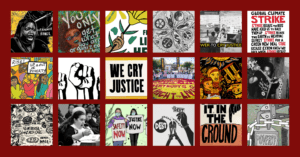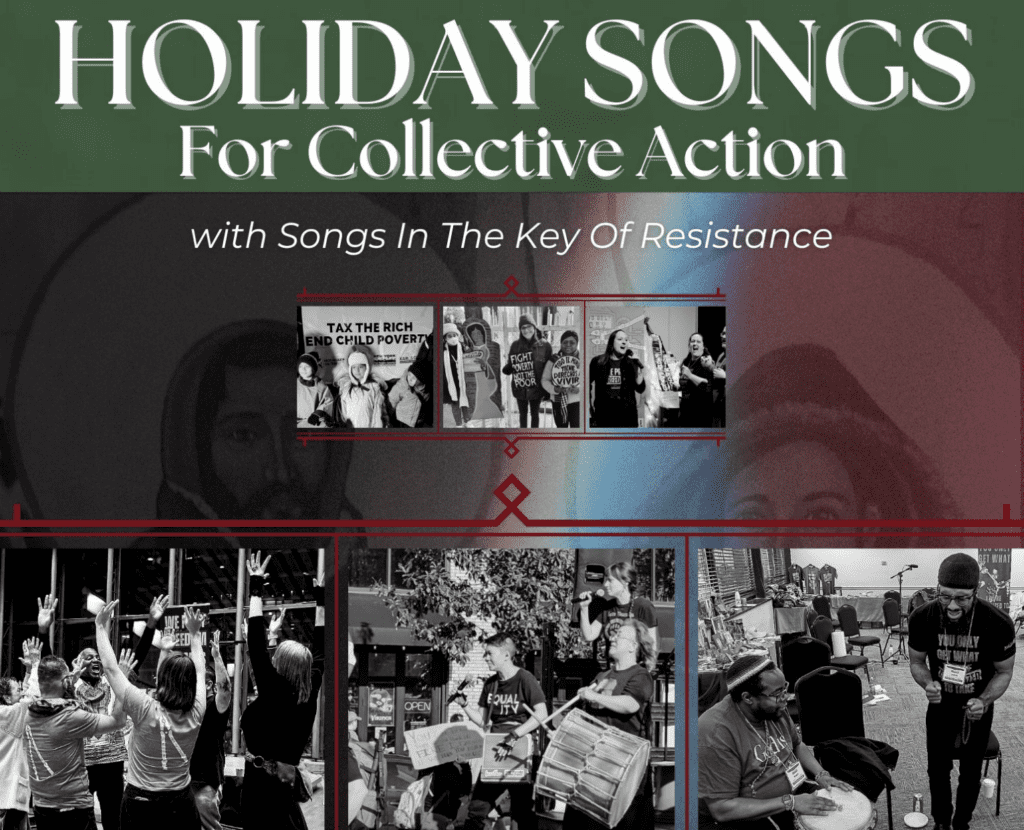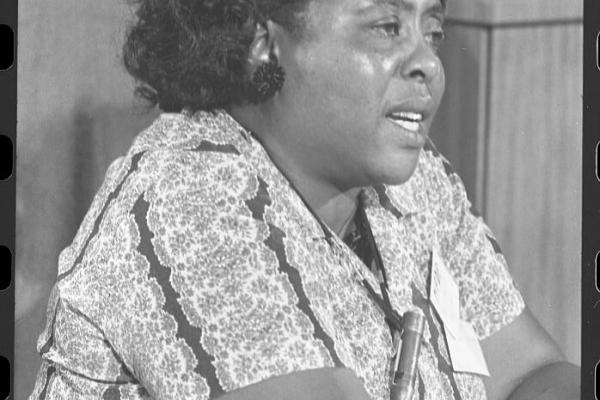Cultural Arts

The arts and culture work of Kairos is deeply connected to the spirit of struggle. Arts and culture have always played an integral role in social movements; amplifying the message and vision of our struggles, building unity across long standing divisions, and igniting the confidence and courage that are needed to move us into action. Visual arts, music, and ritual can evoke deep emotions that are central to the struggle — lament and anger at injustice alongside hope, joy and unity among movement-builders. Social movement history is rich with artists who did not just “decorate” their struggles — but who used art to move the hearts and minds of many to win significant change.
The arts and culture work of Kairos takes up this legacy to develop resources by building the leadership of artists and cultural organizers who can communicate the power and potential of a movement led by those most impacted by injustice. Arts, culture, and media are essential for conveying the lessons of our work and as a tool for mass political education.
Fostering Creative Change: We seek to change dominant social narratives by convening artists and storytellers with lived experiences of injustice — and by helping their work reach lawmakers, journalists, influencers and millions of poor and low-income people. Educational and inspirational resources produced include the Songs In The Key of Resistance Songbook, the It’s Kairos Time podcast series, the Justseeds Poor People’s Campaign Portfolio, and the America Will Be Video Series. Individually and collaboratively, our artists cohort develops messaging and art for the vision of a society where people and communities thrive, not merely survive, and has produced and compiled 50+ original works through our We Cry Justice Cultural Arts Project.
Our work has been featured across organizing journals, podcasts, and news outlets, emphasizing the vital role that arts and culture play in building and sustaining social movements. Through pieces like “Striking a Chord for Change: the Poor People’s Campaign for Revolution,” “How Cultural Strategy Drives Long-Term Change,” and “Liberation Theology, Poverty, and the Choir,” we’ve reached a wider audience and underscored the power of cultural arts in advancing our organizing efforts for long-term change.
If we are to shift the distorted moral narratives that maintain injustice in our society, we must think intentionally about strengthening our use of media, arts, and culture to build solidarity, develop leadership, and push forward our ideas and values as a movement.

